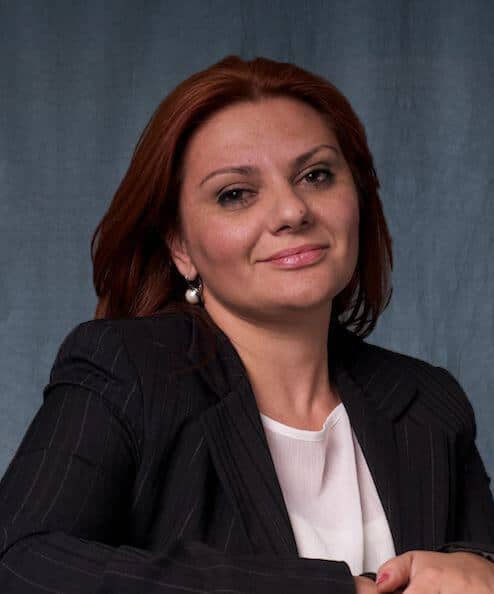The Albanian labour market in 2017, “Monitor.al”
Tirana, Albania – Financial experts, IT professionals, software experts and construction engineers are expected to do well in the Albanian labour market in 2017.

"Stagnation" is the word that Albanian headhunters use most in regard to the current state of the Executive Search sector. A lack of foreign investment has contributed to the reduced demand for high-level managers, and most companies – especially larger ones – have been cutting costs by keeping a tight grip on headcount while encouraging internal promotions, reducing the need for external talent recruitment.
Pranvera Papamihali, Country Manager for Albania at the Executive Search firm Pedersen & Partners, says that in 2016 there was a tendency to replace foreign executives with Albanian managers, both to reduce costs (foreigners are paid two to three times more than locals), and to promote local leaders.
One interesting market trend is an increasing demand for female senior managers. Ms. Papahmali says that Pedersen & Partners enforces a standard of presenting a minimum of two female candidates for the leading positions when presenting a list of candidates to a client company. This is considered to be a very positive step, which is helping to close the gender gap in local and international labour markets.
According to Ms. Papamihali, the higher demand for female executives is stimulating a tendency towards equal representation at the top of the hierarchy.
But what professions will be most in demand in Albania this year? Which sectors will dominate the labour market? Recruiters say that in addition to the traditional professions, there will be a constant need for digital talent, designers, mechatronics (mechanical electronics) experts, and people with experience in the chemical industry.
Recruitment firm executives claim that the most interesting performance will be seen in infrastructure, while the private sector, mainly large companies, is expected to stagnate.
What are the best-paid professions in Albania?
Before the financial crisis, the labour market in Albania was thriving. The demand for top executives was high, both foreign and domestic, but as the economy slowed, recruitment followed the same trend.
“Recruiters for senior managerial positions are looking for individuals with at least two or three years' experience in their respective field. Candidates must be over 30 years old, and must be qualified for their specific function. In addition, the candidate must not be too young, as companies think that a young manager is likely to change jobs frequently to gain experience,” Ms. Papamihali says.
Recruiters often highlight the fact that the poor local education system means that Albanians often lack substantial analytical skills, and tend to be superficial, which can be a disadvantage.
However, there is a growing demand for digital offshore services (BPO), mainly serving German markets. They are looking for young people who have experience in areas such as information, technology, software development, etc., alongside language skills.
Ms. Papamihali states that financiers and economists remain most in demand, followed by marketing professionals who specialise in areas such as social media management and event organisation. Software developers are also highly sought-after, and quite well-paid. Technology-driven enterprises tend to make investments that relate to increased productivity and reduced costs.
Major investments such as the Trans Adriatic Pipeline (TAP) have stimulated the need for more civil engineers, mechanics and implementation specialists. Major projects such as this one are considered highly prestigious for the individuals and businesses who can meet the very specific mandates and work on them. For example, TAP has selected high-altitude specialists from Mexico to carry out works in the Çorovodës area, 18,000 meters above sea level. Conversely, Italians are known for their experience in laying underwater pipelines, and may be called upon to do so in the Seman River area.
Another important and growing sector is mechatronics (mechanical electronics). Mechatronics has become key for many products and services, and integrates the classical fields of mechanical engineering, electrical engineering, computer engineering and information technology to implement the basic principles of modern design methodology. According to Ms. Papamihali, male candidates are preferred in the field of mechatronics, while female candidates are favoured for positions in economics and finance, marketing and chemistry.
Retail & sales are not expected to have any major recruitment requirements, although the leaders of this sector are talking about investments. Moreover, no significant developments are expected in the energy sector; Statkraft, one of the largest companies, is not expected to undertake major recruitments.
Salary trends
The average salaries of executives in Albania vary depending on the company, location and industry, with international companies paying higher salaries than local ones.
There is a recent tendency to reduce costs by replacing top foreign executives with domestic ones. In recent years, the average annual salary for a senior executive at an international company, including bonuses, has ranged from 39,000 to 52,000 euros, while the local companies, the same positions paid 24,000 to 36,000 euros.
On the other hand, there is a large difference between the salaries of top executives working in Tirana and those in the rest of Albania. However, recruiters say that the philosophy of compensation has not changed significantly, and during 2016 no compensation fluctuations were noticed in comparison with 2015. The best-paid professionals remain the heads of finance departments, who receive salaries ranging from 3,000 to 4,000 euros, with financial specialists being paid 800-1,000 euros.
Human resource managers receive 1,500-2,000 euros, whereas depending on the company, payments to banking executives range from 6,000-7,000 euros per month, including bonuses. Telecommunications managers earn from 5,000 to 7,000 euros per month, and IT engineers are also well-paid, receiving up to 2,000 euros per month. However, civil and mechatronics engineers are less well-paid. Many companies are trying to move towards a more value-based system and reduce the gender-based wage gap. Ms. Papamihali concludes that for female professionals in Albania, results are more important than gender.
Albanian industries with high or medium compensation levels:
- Economics / Finance
- Information Technology
- Marketing
- Development programmes
- Digital
- Engineering
- Mechatronics
- Manufacturing / Chemical Industry
- Design
- Services
(Note: This list is based on guidelines from recruiters, not on a proper market study)
Average monthly salaries for selected professions:
- Finance chief - 3,000 - 4,000 euros
- Specialist finance 800 to 1,000 euro
- Leading HR 1,500 to 2,000 euro
- IT engineers 1,000 - 2,000 euros
- Construction engineers – 1,000 euro
- Mechatronics - 1,000 euro
 Pranvera Papamihali is the Country Manager for Albania at Pedersen & Partners. Prior to joining the firm in 2007, Ms. Papamihali worked as Head of Corporate Affairs at Albanian Mobile Communications and as a Specialist at the Ministry of Foreign Affairs of Albania.
Pranvera Papamihali is the Country Manager for Albania at Pedersen & Partners. Prior to joining the firm in 2007, Ms. Papamihali worked as Head of Corporate Affairs at Albanian Mobile Communications and as a Specialist at the Ministry of Foreign Affairs of Albania.
Pedersen & Partners is a leading international Executive Search firm. We operate 56 wholly owned offices in 52 countries across Europe, the Middle East, Africa, Asia & the Americas. Our values Trust, Relationship and Professionalism apply to our interaction with clients as well as executives. More information about Pedersen & Partners is available at www.pedersenandpartners.com
If you would like to conduct an interview with a representative of Pedersen & Partners, or have other media-related requests, please contact: Diana Danu, Marketing and Communications Manager at: diana.danu@pedersenandpartners.com
